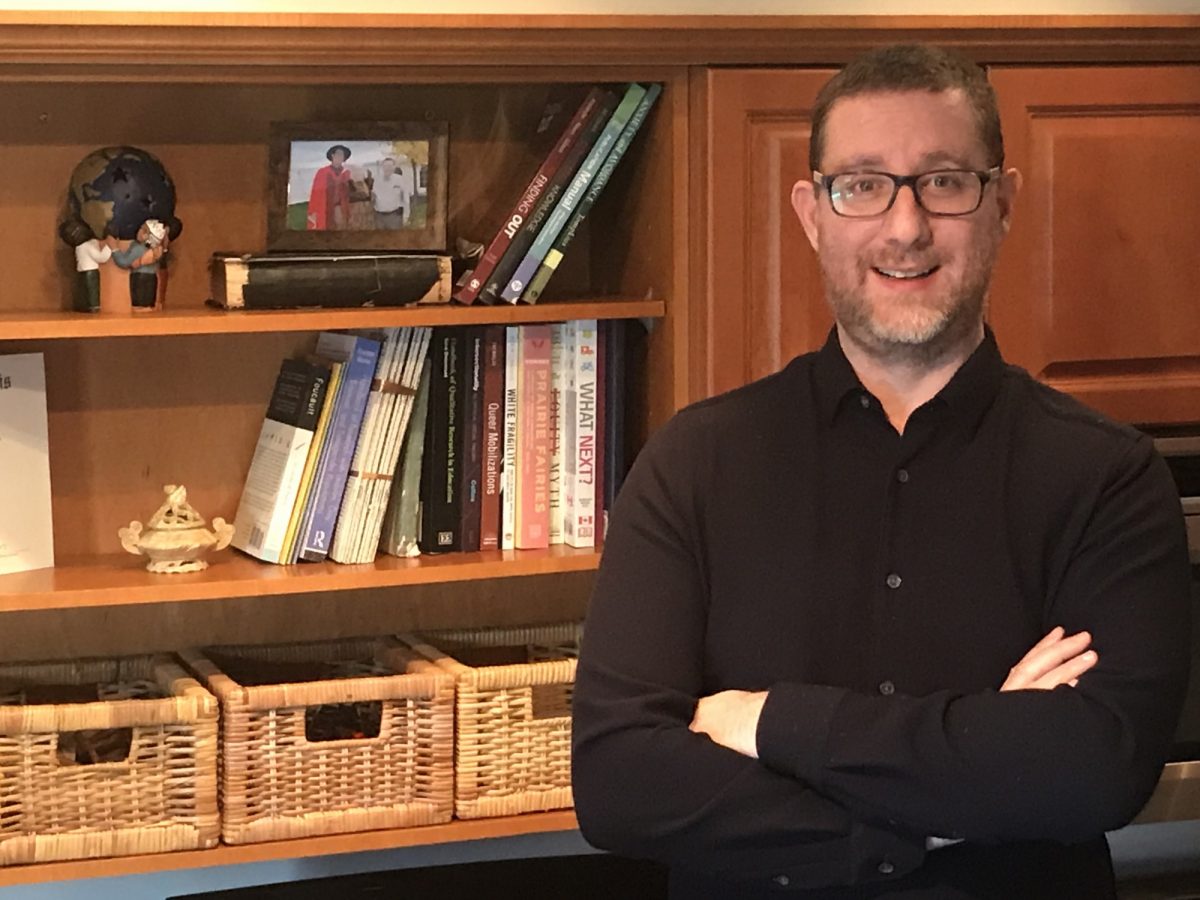
Dr. Robert Mizzi, new Canada Research Chair in Queer, Community and Diversity Education.
Meet Robert Mizzi, the new UM Canada Research Chair (CRC) in Queer, Community and Diversity Education.
Robert Mizzi, the new UM Canada Research Chair (CRC) in Queer, Community and Diversity Education joined UM seven years ago as an assistant professor in educational administration, foundations and psychology at the Faculty of Education. He was awarded a Tier 2 CRC, which comes with $500,000 in funding over five years, from the Social Sciences and Humanities Research Council. UM Today caught up with him to learn a bit about him and the research he is undertaking.
Tell us about your research.
Canada is regarded as a global leader when it comes to lesbian, gay, bisexual, trans, two-spirit, and queer (LGBT2Q) rights. However, in 2019 the Organization for Economic Co-operation and Development reported that Canadians are only halfway towards accepting homosexuality. In 2020, Statistics Canada reported that sexual minority Canadians are twice as likely to experience harassment in the workplace. Clearly, the work towards LGBT2Q inclusion is not finished in Canada. Educating people about their homo/transphobic biases can be highly effective and lead to inclusion of LGBT2Q people in organizations. Yet, often the response by organizational leaders is to provide short, standalone LGBT2Q-awareness workshops, which rarely leads to social transformation in the workplace. Organizations need different and more effective forms of educational interventions. I will research various groundbreaking anti-homo/transphobic educational programs and determine their effectiveness on policy development and social cohesion. My research findings will change the way we engage educational interventions around LGBT2Q inclusion and ultimately lead to more safe, diverse, and prosperous workplaces.
Tell us a bit about yourself.
I am originally from southern Ontario. As an avid hiker and tea aficionado, I recognize the importance of work-life balance. I strive for excellence, and a part of achieving this goal means learning beyond books and lectures. I have taken courses in Taiko drumming, pottery, cooking, and French language, just to socialize and learn something new. The UM shares similar values through its experiential learning approaches, global outlook, and commitment to equity, diversity, and inclusion. I like to think that the UM chose me, as research involving LGBT2Q populations can be controversial to some institutions. The Faculty of Education felt that this research is a priority when it comes to building safer and more inclusive organizational and educational systems.
What does CRC funding mean to you as a researcher?
The CRC funding means that I can strengthen LGBT2Q inclusivity and more adequately address trans/homophobia in organizations. I will demonstrate how an organization principled on inclusion of LGBT2Q people and other equity-seeking groups flourishes, reflecting a more accurate picture of the society that surrounds us.
How did you feel when you learned you were awarded your CRC?
I was over the rainbow! I come from a working class, first-generation Canadian family, and so this award means a lot to them and to my mentors, namely Tonette Rocco and Didi Khayatt, who have supported me throughout my academic journey. There is only one other LGBT2Q-themed Canada Research Chair in Education, and so my CRC means that LGBT2Q communities can advance their platform of peace, collaboration, and inclusivity through my CRC.
What inspires you?
Almost always my study participants come from marginalized communities. This may sound cliché, but when I interview them, I become instantly inspired by their rich stories of resilience, creativity, and courage. My research participants often aim to ameliorate difficulties in their professional lives, and view research as one way to end inequity and foster systemic and social transformation. It is difficult to pin down just one research role model, as I gravitate to several researchers for different reasons. A few scholars that come to mind are bell hooks, Audre Lorde, Andre Grace, and Robert Hill because they point out the intersectionality of racism, homophobia, and sexism.
What about you would people find surprising?
I am a professionally trained actor. I have appeared on television and on stage in Canada, Japan, and the UK. I prefer acting in comedies as I enjoy making people laugh. I still have ambitions to return to the stage, but for now, my classrooms, guest lectures, and research studies are my muse.
Do you have any advice for students/young grad students starting their career?
Take full advantage of the opportunity of being a student, as it is a one-of-a-kind experience in your life journey. This means attending social events, workshops, conferences, seminars, tutorials, writing groups, and anything else beyond your coursework. The UM offers a plethora of support and academic services and research projects, and I suggest you access all that you can. You will develop new skills and insights, create opportunities that advance your careers, and expand your professional network as a result. Carpe diem!
Research at the University of Manitoba is partially supported by funding from the Government of Canada Research Support Fund.






